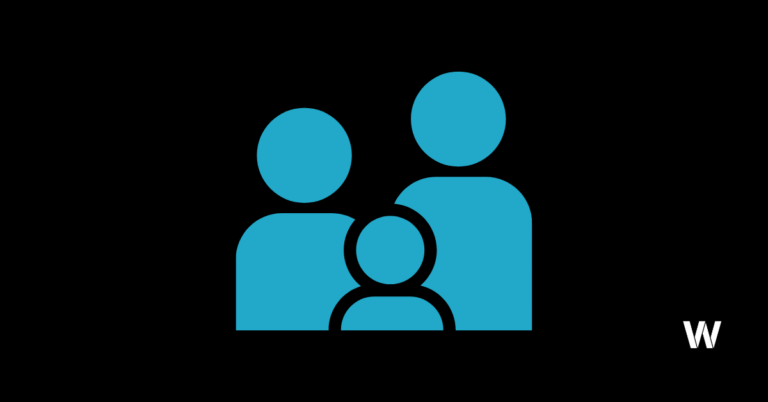Lies We Tell Ourselves About Money
By Warren Wong
Money is a touchy subject. We don’t like to talk about where it’s coming from, how much money we make, and a whole slew of other lies we tell ourselves about money.
I’m going to be talking about 5 lies that we tell ourselves about money, and what it does to our mindset.
Not because I am money hungry, but I believe that financial education is wholly important and that it can transform our lives, for better or worse.

What does our upbringing have to do with money
We learn a lot about money, managing finances, and how we perceive money from the people we surround ourselves with the most, and for many of us, that would be our parents growing up.
Who and what we surround ourselves with dictates our money habits.
I grew up in a minority dominated neighborhood in Queens, New York. Our little 2 story brick house on the block was lined with many homes tightly spaced out, with a small or non-existent front yard and a quaint backyard with hardly any room to stretch your legs.
There was the charm of the occasional fiesta and loud Latin music in the background on warm Summer days.
My parents, being immigrants, were very conscious about money. Although I was young, I knew that we were not well to do.
My father was an electrician in China and made a decent living there, but without a basic standard of conversational English, he could not continue on in the U.S.. And so he became a handyman, starting with friends of the family type jobs, and slowly building his client base over the years.
He learned plumbing, wiring, landscaping, painting, remodeling, and anything else needed to earn a steady paycheck, to put food on the table, pay the bills, and money saved for college for his two sons.
On the home front, my mother took care of my brother and I full-time. She drove us to school, brought us to swim practices, and with the little money saved up she sent us off to the dreaded summer school for test prep which was held inside a small classroom with 50 other kids just dreaming of going outside to play.
As with most Asian households, my parents put an emphasis on a good education, with the expectation of a well paying career.
Lack of financial education
Like most parents, they were preparing us for the employee mindset of the corporate 9 to 5.
This is a very common to most folks.To my parents, this is the only option for us. And our school teachers reinforced that. Nowhere in my high school education did we learn about investing, balancing a book or even what the Federal Reserve did.
It was only until my 3rd year in college when I majored in Accounting that I learned how to balance a book.
I can only imagine what my other colleagues’ financial education was over in the art and history department.
Oddly enough, our parents never really talked about money or the managing of the finances either.
Money was really a taboo subject, but it was brought out by the actions we took. It was through the hand me downs and frugal lifestyle that spoke volumes of our finances.
I only understood this when I was in my early 20s. I just didn’t have that insight when I was a teenager, I just cared that I didn’t have a gameboy like the rest of my friends.
My relationship with money through my teenage years was turbulent. I wanted to spend money that I didn’t have, while my parents yelled at me to stop being wasteful.
Defining Wealth
If the only thing that I learned from my parents was being financially disciplined, then it would serve me well in the future.
However, on the opposing side, I didn’t learn how to make money, more importantly, build wealth.
I define wealth as having abundance, not only in the financial sense, but also in time, relationships, and meaning. Being rich is temporary, while wealth is forever.
I knew if I did what everyone was doing, I would never become wealthy. I had to get off the beaten path, but I didn’t know how.
Lie # 1: I will never be wealthy
My parents never taught me, and neither did my schooling. This led me to discover a lie I told myself, that I would never be wealthy.
That it was limited to those lucky few. I had a limiting mindset, and like most people I did not know where I to turn to for knowledge and wisdom.
My relationship with money started when I was growing up in Queens, but it really started to blossom after reading a couple of key books that changed my life.
The first is the 4 Hour Work Week, by Timothy Ferriss, and the second book is Rich Dad Poor Dad, by Richard Kiyosaki.
What I didn’t learn from my parents, I began searching through books. What these books taught me was how to leverage time in relation with money.
They taught me that time is your greatest ally or your worst enemy.
Study after study show that levels of happiness increase minimally after making more than $75,000 per year, but the studies do show that people that make less than that, have increased levels of unhappiness.
This does not apply to everyone, but it does give us an idea that we need to look beyond just money.
Wealth also includes the freedom of time, time freedom is another well kept secret of the wealthy.
It is the freedom to leisurely travel on a Monday to Friday, time to take your kids to school, ball practice, and a visit to a museum on a Tuesday afternoon.
Here’s some interesting statistics:
- The average college student spends 6 years to finish their degree and only 27% of graduates had a job that matched their degree.
- The average commuter in a metropolitan area spends 2 hours a day in traffic round trip, 10 hours a week, 40 hours a month, 20 days a year.
- The average person spends 8 hours a day at work, but approximately only works 3 hours, according to a survey conducted in the UK.
Going forward I became more diligent and observant of my time. I tracked where my time was going, how to effectively accomplish more, and move my goals forward.
I have my good and bad days, but now each bad day is a little bit less bad, and that is a win.
While I am just as guilty as the next guy, now I am more aware of the subconscious lies I tell myself. I knew that before I could move forward, I had to learn what was holding me back.
Lie #2: I need to keep up with the Joneses
One of the biggest lies I told myself was I had to keep up with the latest trends. I fell into the trap of “keeping up with the joneses” , an idiom that describes a materialistic comparison of one’s social class through accumulation of material goods.
It wasn’t as if I was actively voicing this to myself everyday, but it was subconscious, through my thoughts, and actions.
Related post: I Have a Big Ego
I would find myself scrolling through Amazon, looking at different products and wanting the newer version that came out. I would read through the raving reviews and then automatically felt my old iron of 2 years was now inadequate, when in fact, it worked just fine.
I justify it to myself by reasons like, it has better features, saves on electricity, and looks way cooler.
Subconsciously I would see my roommate’s nice baby blue Infiniti Q60 and it would invoke a feeling in me that my pristine condition Honda Civic 2016 needed an upgrade, perhaps the new Mazda Miata 2020.
The consumer packaged goods industry spends approximately $100 billion annual on shopper marketing. They are keenly aware of demographics, internet browsing history, active times, and locations.
Practicing financial minimalism
The only way that I was able to combat wanting more, was to be satisfied with what I have.
And no, it doesn’t mean that I don’t splurge once in a while, but I consciously ask myself if what I’m buying has a use and if it brings me happiness.
I found solace in the practice of minimalism. I took all my things in the house and systematically asked myself if I needed it and if I actually had a use for it.
Anything that didn’t answer yes to both those questions, I either gave it away, donated or threw it out.
Through this process, not only was I able to make room in the house and make it clutter free, but I was now starting to live intentionally, and that was the prize all along.
Keeping up with the Joneses has an unintended consequence. The current national debt when I just last checked was at a staggering 23.38 trillion dollars.
A recent March 2020 survey from Charles Schwab found that 59% of Americans were living from paycheck to paycheck, only 38% have an emergency fund and 44% with credit card debt.
When I read that statistic I was shocked. And this is not only affecting the lower, lower middle class, but also the upper middle income earners – those making six figures – are struggling to make ends meet.
A recent study by global advisory firm Willis Towers Watson found that 18% of employees making more than $100,000 annually were living paycheck to paycheck.
There can be countless reasons why we are so prone to debt and spending money that we don’t have, but in my opinion it is a way of life that is unsustainable.
What the recent health crisis has highlighted is the financial crisis we are in. Without a job, many Americans and also businesses don’t have cash saved up to even weather a few months of no income.
That is alarming and highlights fundamental problems in our relationship with money.
Seneca said, “It is not the man who has too little, but the man who craves more, that is poor.”
Lie #3 That money will always come
Perhaps, it’s because we lie to ourselves that the money will always come. During the 2008 financial crisis, poor decisions led to thousands going out of business and filing for bankruptcy.
On the other hand, there were many smart investors that were prepared not only to weather the storm, but to seize the opportunity. They purchased houses, and businesses for pennies on the dollar.
When there is a recession, wealth is not lost, it is merely transferred from one hand to another.
While we can never predict when the next financial crisis is going to happen, we do know that it will continue to happen, history has proved it time and time again.
As Benjamin Franklin wisely said, “by failing to prepare, you are preparing to fail.”
Lie #4: I’m young I don’t need to save
Another lie I told myself is that I’m young and I don’t need to save. I can’t comprehend how wrong I was. I wish I started saving money when I was 18 and invested it.
I was a broke college student with barely enough money for textbooks or dinner. But when I started getting paychecks after college, I immediately began investing it. I knew that time was my friend.
The greatest secret of the wealthy
The power of compound interest.
If you were to invest $1,000 every year for a period of 10 years on a modest average market of 7% per year. You would be looking at $15,874. If you stuck with it for 30 years that sum would be $102,703.
Related post: Why NOW is the Best Time to Invest
We are only talking about $1,000 a year which means eating out less and a few less impulse purchases a year.
Like many of you, I enjoy eating at nice restaurants, traveling, and having the latest tech gear, and you can have it, but you should also set aside money to invest in your future.
Lie #5: Retirement is at 65
The retiring age for those born after 1960 is 67. I don’t know about you, but I don’t plan on retiring at 67.
One of the biggest lies we tell ourselves is that the retiring age is 65 or 67 in my case. The original Social Security Act of 1935 set the minimum age for receiving full retirement benefits at 65, and with the advent of modern medicine, the average life expectancy has increased, and along with it, the retirement age.
I would not be surprised that the retirement age will reach 70 very soon. If you began working at the age of 21, right after university, you would have 49 working years. That is scary.

My goal is to be fully retired at 45, but that doesn’t mean I’m not going to work, but it means I can work on things I love doing and not worry about money.
Think about this. If you were a billionaire, would you be working at your current job?
If you said yes, congratulations you are one of the lucky few. If you said no, then you should be closely aware of your relationship with money.
Do you know where you spend your money, how much debt, assets, and liabilities you have?
When I started formulating my plan for an early retirement, I needed to figure out the most important figure, my minimum per month to live comfortably. Everyone’s definition of comfortable will be different, but you have to be realistic.
If it’s not realistic for you to be spending $10,000 per month in retirement then that is an unrealistic goal. Have in mind a minimum, so that you can start working towards that.
Personally, the minimum I would need to retire comfortably would be approximately $4,500 per month or $54,000 annually. The Retirement Manifesto has retirement calculators and articles if you want to learn more.
Now that I know how much monthly income I need to retire, I need to find ways to source that income. This is where most people get caught up.
To be retired, you need to have passive income, otherwise you would be working until you die. Passive income is defined as money that you earn in a way that requires little to no daily effort to maintain.
Examples would be real estate rental income, dividends from stock investments, an online course, E-commerce, etc. Of course all of these ways require effort and time upfront, but once you have a system and foundations in place, they can be passive.
Conclusion
My parents taught me invaluable lessons about money, but my financial education journey began when I started looking at the subconscious lies I told myself, which were holding me back.
In summary, the 5 lies that we tell ourselves about money are:
- I will never be wealthy
- I need to keep up with the Joneses
- That money will always come
- I’m young I don’t need to save
- Retirement is at 65
It takes real discipline to examine your spending habits, how you utilize your time, and not deceive yourself.
“Time is more valuable than money. You can get more money, but you cannot get more time.” – Jim Rohn
Question for you
Are you where you want to be? Do you have a healthy relationship with money?





